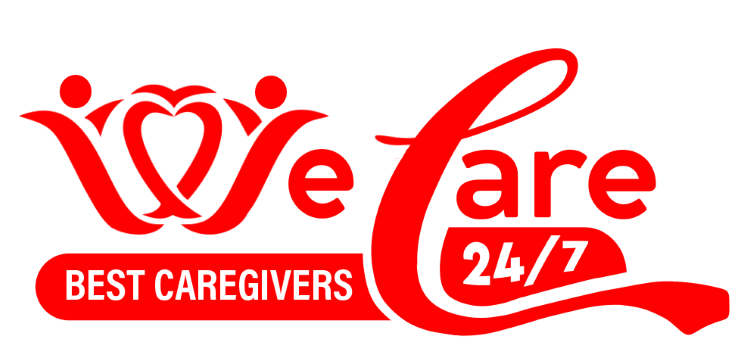Your Guide: CSOC to DDD Transition in NJ for Age 21

Navigating the Path from Childhood Services to Adult Support in New Jersey
For New Jersey families with a young adult approaching their 21st birthday, this milestone brings not only celebration but also a significant transition in support systems. The move from the Children’s System of Care (CSOC) to the Division of Developmental Disabilities (DDD) marks a fundamental shift in how services and supports are accessed. This guide from WeCare Home Caregivers aims to demystify this process, helping you plan effectively for a seamless continuum of care for your loved one in the Garden State.
Understanding this transition is paramount for parents, guardians, and caregivers. The services available through CSOC, tailored for children and adolescents, differ considerably from the adult-focused programs offered by DDD. Proactive planning ensures that essential supports, including in-home care services, remain in place, promoting independence and well-being as your family member enters adulthood.
Understanding New Jersey’s Support Systems: CSOC and DDD
Before diving into the transition itself, it is helpful to grasp the distinct roles of the Children’s System of Care (CSOC) and the Division of Developmental Disabilities (DDD) within New Jersey’s service landscape. Each system serves a specific demographic with tailored support structures.
The Children’s System of Care (CSOC)
Administered by the New Jersey Department of Children and Families (DCF) through the Division of Children’s System of Care, CSOC provides a comprehensive network of services for children and youth up to age 21 who have emotional and behavioral health challenges, or intellectual and developmental disabilities. CSOC’s design is to deliver community-based care, promoting children’s development within their home environment whenever possible. Services often include intensive in-community support, family support services, and behavioral assistance, all coordinated to meet a child’s specific needs.
For example, a family in Bergen County with a teenager receiving behavioral therapy and respite care through CSOC will experience the sunsetting of these services as their child approaches their 21st birthday. The system is designed to provide time-limited, youth-focused interventions.
The Division of Developmental Disabilities (DDD)
In contrast, the Division of Developmental Disabilities (DDD), part of the New Jersey Department of Human Services, serves adults aged 21 and older with intellectual and developmental disabilities. DDD’s mission is to provide opportunities for individuals to live as independently as possible in the community, with supports tailored to their adult needs. These supports can encompass residential services, day programs, supported employment, and critical in-home services like personal care assistance and skill development, often provided through agencies such as WeCare Home Caregivers.
The transition from CSOC to DDD represents a move from a child-centered, often short-term model to an adult-focused, long-term support system. This change impacts eligibility criteria, funding mechanisms, and the types of services available, making early and informed planning indispensable for New Jersey families.
The Significance of the Age 21 Milestone
The 21st birthday is a momentous occasion, yet for individuals with disabilities and their families, it also signals a profound shift in care access. At this age, a young adult typically “ages out” of the children’s service system, including CSOC. This means that services previously received may cease, requiring a new framework of support through adult systems like DDD.
This transition is more than an administrative change; it is a re-evaluation of needs and a strategic shift in how support services are funded and delivered. Without adequate preparation, there can be a lapse in essential services, potentially causing stress and disruption for the individual and their family. Consider a family in Middlesex County; if planning for the DDD transition begins too late, their adult child might face a period without crucial in-home supports previously available via CSOC, impacting their routine and well-being.
Proactive engagement with this transition process ensures continuity of care, access to appropriate adult services, and the opportunity for the individual to continue developing life skills and community integration. WeCare Home Caregivers understands these challenges and stands ready to support families through this pivotal period.
The Transition Process: A Step-by-Step Guide for New Jersey Families
Navigating the CSOC to DDD transition requires foresight and methodical action. Beginning the process well in advance of the 21st birthday is the most effective strategy. Here is a step-by-step guide to help New Jersey families prepare:
Step 1: Initiate Early Planning (Age 16-18)
The optimal time to begin preparing for the DDD transition is when the individual is between 16 and 18 years old. This provides ample time to gather necessary documentation, understand eligibility, and attend informational sessions. Early planning minimizes stress and helps prevent gaps in services as the 21st birthday approaches.
Families should discuss future needs, aspirations, and potential living arrangements with their young adult. This comprehensive view will inform the type of supports needed from DDD. Contacting DDD for their official transition guidelines is an excellent starting point during this phase.
Step 2: Establish DDD Eligibility and Complete Application
Eligibility for DDD services is contingent upon meeting specific criteria, primarily having an intellectual or developmental disability that originated before age 22, resulting in substantial functional limitations in at least three major life areas. The application process requires detailed documentation.
- Required Documentation: You will need a psychological evaluation (dated within the last three years) that includes an IQ score and adaptive functioning assessment. Medical records confirming the diagnosis and its onset are also necessary.
- Application Submission: Complete the DDD application package, ensuring all sections are accurately filled out. In New Jersey, this can often be done online or via mail. It is advisable to keep copies of all submitted documents.
- Functional Assessment: DDD will assess the individual’s functional limitations to determine the level of support required. This assessment guides the development of their individualized service plan.
Timely submission of all required documents is paramount to avoid delays in eligibility determination. A family in Trenton, for instance, should prioritize securing up-to-date psychological evaluations as a foundational step.
Step 3: Attend Informational Sessions and Workshops
DDD regularly hosts workshops and informational sessions designed to educate families about the transition process, available services, and funding options. These sessions offer invaluable insights and opportunities to ask questions directly to DDD representatives.
Organizations like The Arc of New Jersey also provide extensive resources and advocacy for individuals with disabilities, offering workshops specifically on the DDD transition. Participating in these events can clarify complex processes and connect families with support networks.
Step 4: Understand Funding and Waiver Programs
Services through DDD are primarily funded through Medicaid, known as NJ FamilyCare in New Jersey. Eligibility for Medicaid is often a prerequisite for accessing DDD services and waiver programs.
- Medicaid (NJ FamilyCare): Apply for NJ FamilyCare if the individual is not already enrolled. This healthcare program is foundational for accessing DDD waiver services.
- Supports Program (SP): This waiver provides a fixed budget for individuals to purchase a variety of services and supports to live in the community. It focuses on person-centered planning.
- Community Care Program (CCP): This waiver provides a more comprehensive array of services, including residential options for individuals with higher support needs.
Understanding which waiver program aligns with your loved one’s needs is a key part of financial planning for their future care. WeCare Home Caregivers can help families understand how our in-home care services fit within these funding structures.
Step 5: Develop an Individualized Service Plan (ISP)
Once DDD eligibility is confirmed and a waiver is secured, the next crucial step is developing an Individualized Service Plan (ISP). This plan is person-centered, meaning it is designed around the individual’s preferences, goals, and needs. A support coordinator, assigned by DDD, works with the individual and family to create this plan.
- Person-Centered Planning: The ISP focuses on what is important to the individual and what is important for them. It outlines specific services, goals, and desired outcomes.
- Service Selection: This is where services like in-home care from WeCare Home Caregivers are identified as part of the support package. The ISP details the type, frequency, and duration of services needed.
- Regular Review: ISPs are reviewed and updated annually, or more frequently if needs change, to ensure they remain relevant and effective.
Families in Newark or throughout New Jersey should actively participate in ISP development, advocating for services that promote independence and quality of life. This includes discussing the benefits of dedicated in-home care for daily living assistance, personal care, and community integration.
Types of Supports Available Through DDD in New Jersey
The Division of Developmental Disabilities offers a diverse range of supports designed to promote independence and community inclusion for adults with intellectual and developmental disabilities. These services are tailored to individual needs, as outlined in their Individualized Service Plan (ISP).
Key service categories include:
- Residential Services: Options range from supervised apartments and group homes to independent living supports, allowing individuals to live in the least restrictive environment possible.
- Day Programs and Employment Services: These programs focus on skill development, community integration, vocational training, and supported employment opportunities, helping individuals find meaningful work and engage in daily activities.
- Community-Based Supports: This broad category includes services like community inclusion, transportation assistance, and behavioral supports, enabling individuals to participate in their local communities.
- In-Home Support Services: This is where agencies like WeCare Home Caregivers play a vital role. These services provide direct care and assistance within the individual’s home.
The Role of In-Home Care in DDD Services
For many individuals transitioning to DDD, maintaining a stable and supportive home environment is paramount. In-home care services, offered by providers like WeCare Home Caregivers, are frequently a cornerstone of an individual’s ISP. These services promote independence, personal comfort, and daily routine stability.
In-home care can encompass a variety of supports, including:
- Personal Care Assistance: Help with activities of daily living (ADLs) such as bathing, dressing, grooming, and mobility assistance.
- Homemaking Services: Support with light housekeeping, meal preparation, and grocery shopping, contributing to a safe and tidy living space.
- Medication Reminders: Ensuring medications are taken on schedule, adhering to prescribed dosages.
- Respite Care: Providing temporary relief for primary caregivers, allowing them time for personal appointments or rest, knowing their loved one is in capable hands.
- Skill Development: Assistance with developing and reinforcing independent living skills, such as money management, healthy eating habits, or communication strategies.
- Community Inclusion Support: Helping individuals access community resources, attend appointments, or participate in social activities, enhancing their connection to the broader New Jersey community.
These services are designed to complement other DDD supports, creating a holistic care plan that addresses the individual’s unique needs while maximizing their potential for an fulfilling life at home and within their community. Whether residing in a family home or an independent living arrangement, professional in-home care ensures a consistent level of support and companionship.
WeCare Home Caregivers: Your Partner in the Transition
At WeCare Home Caregivers, we understand the complexities and emotional aspects of the CSOC to DDD transition for New Jersey families. Our mission is to provide compassionate, high-quality in-home care that supports individuals with intellectual and developmental disabilities as they navigate adulthood.
We work collaboratively with families, individuals, and DDD support coordinators to ensure a smooth transition and seamless integration of our services into the Individualized Service Plan. Our trained caregivers are experienced in supporting adults with diverse needs, focusing on promoting independence, dignity, and a high quality of life.
Our commitment extends beyond merely providing services; we aim to be a dependable resource for New Jersey families. We offer personalized care plans that adapt as needs evolve, providing stability and peace of mind. From personal care assistance to community integration support, our team is dedicated to enhancing the lives of those we serve.
Additional Resources for New Jersey Families
Navigating the DDD system and accessing all available supports can be challenging. Fortunately, several organizations in New Jersey offer valuable assistance and information:
- New Jersey Division of Developmental Disabilities (DDD): The official state agency providing services to adults with IDD. Their website is an indispensable resource for eligibility, applications, and general information. Visit the DDD Website
- The Arc of New Jersey: A leading advocacy organization offering support, information, and resources for individuals with intellectual and developmental disabilities and their families. They often host workshops on transition planning. Explore The Arc of New Jersey
- PerformCare New Jersey: As the single point of access for CSOC services, PerformCare can provide information regarding current services and the transition process out of CSOC. Learn about PerformCare NJ
- New Jersey FamilyCare (Medicaid): Information on eligibility and enrollment for New Jersey’s Medicaid program, which is essential for accessing DDD waiver services. Access NJ FamilyCare Information
These resources, combined with the dedicated support of agencies like WeCare Home Caregivers, form a robust network designed to empower New Jersey families through the significant transition from CSOC to DDD.
Planning for a Confident Future
The transition from CSOC to DDD at age 21 is a pivotal moment for individuals with intellectual and developmental disabilities and their families in New Jersey. While it presents administrative steps and new considerations, with careful planning and utilization of available resources, it can be a smooth and empowering process.
By initiating the transition process early, understanding DDD eligibility and waiver programs, and actively participating in the creation of an Individualized Service Plan, families can ensure a seamless continuation of essential supports. WeCare Home Caregivers stands ready to provide professional, compassionate in-home care that complements DDD services, helping your loved one thrive in their adult life.
This journey, while complex, leads to opportunities for greater independence and community integration. We encourage you to reach out to us at WeCare Home Caregivers to discuss how our services can be a beneficial component of your loved one’s personalized care plan during this significant transition and beyond.



